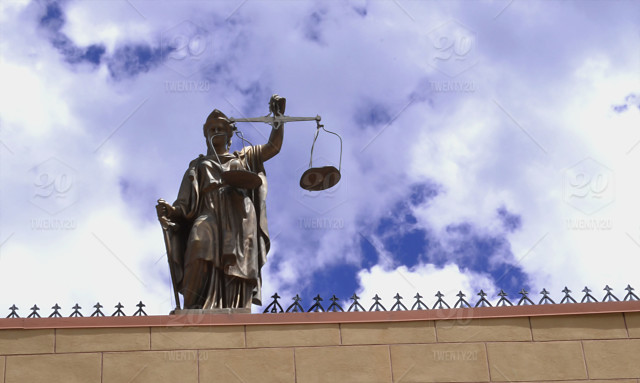Restorative Justice in a Murder Case
The concept of restorative justice is an approach that inspects the needs of the offender. The community of the murderer is also considered. On most occasions the victims are urged to accept their crime and make amends. For example in a case where murder is involved, the assassin is told to apologize. Reparative justice/ restorative justice helps the offender to avoid future crime and he can redeem himself. This works by dialogue between the two parties. The slaughterer and the family of the victim often meet and assess the situation looking at the how and why. Most offended parties are against it as it will not make a difference. This is because it will not bring back the dead. However it can prevent someone else from going through the ordeal. In the case of inmate forgiveness, it is not easy for a person to forgive a person who killed their family member. There is no obligation of forgiveness but forgiving a wrongdoer has been advocated even in religion. It has myriads of benefits. The right to privacy is a human right that restrains public bodies like government from invading the privacy of people. The decision of whether to accept a restorative justice in murder cases follows.

There are different concepts of restorative justice. Crime is a violation of relationships. Both the victim and the communities involved have been affected. Crime should not be left to chance but it should be addressed however painful it is. Restorative justice seeks to maximize dialogue and participation of the two parties who cannot see eye to eye. It gives closure and healing when both sides speak out. It also prevents future crime. The wrongdoer gives an account of what happened and why. The wrongdoer is able to accept the crime in front of the affected. Examining the reasons behind the murder can prevent any pending crime from happening. The state provides amenities such as an investigative department to ensure that the murderer was not wrongfully accused. Restorative justice brings the offender face to face with the effect of his actions and this brings obligation. In most occasions he will be looking for ways to make it right. This is voluntary and he is not coerced. When they don’t feel obligated they will have to accept the terms. This is also an avenue for the reprobate to talk about his needs. The society should have the interest of the victims at heart because the same tragedy can befall them. The community also ensures that there is peace. The process maximizes the exchange of information between both parties. The victims are given the upper hand in making the decisions. In a case where the criminal will be executed, the affected parties can give them a piece of their mind. This ensures that they get rid of all the resentments and bad blood. This prevents them from suffering remorse for the rest if their lives. The reasons for restorative justice are to restore every dignity to both parties. The goal of this is to bring in an understanding, to encourage accountability and to provide an avenue for forgiveness.

Forgiveness should not be forced but it should be optional. People should forgive the wrongdoer if they seem remorseful. If the people regret their mistakes and they seek forgiveness it is right to forgive. This means that the murderer will die knowing that he/she was forgiven. Some people forgive whether the criminal shows contrition or not. It is part of culture and religion. It is more sensible to revenge but it is human to turn the other cheek. Sometimes the wrongdoer has to earn the forgiveness but in this case where the murderer is being executed, he is paying for his crime. While deciding whether to grant a criminal his wish it is important for people to consider the following ethical factors. The judgment made should express the values of the deciding party. Understanding the theory of morality requires people to investigate what people value and why. It needs people to be just and fair. The consequence theory states that the moral value of an action should be based on the ramifications but not the intentions and motives. This means that the community should look at the consequences of the murder and not the motives. In every situation the decision that upholds morality is that one which ensures that the greatest number of people are happy. Values like not killing people should be upheld. Once a person contravenes those values he should be punished. Other theories state that there should be room left for autonomous people and the community to influence the decisions.

The procedure of the decision making process should happen a few weeks before the execution. The family needs to consider the fact that he has requested to meet. This means that he has something important to say to them. There should be speeches from the family members. Talking helps to release tension and it helps the relatives to establish a common ground. The members should each write the pros and cons of this meeting being truthfully honest with each other. A neutral party needs to compile the positives and negatives on different sides. There should be discussions on each of the points. The immediate family members should each be given priority to talk and give their sentiments on this matter.The relatives should decide to go along with the meeting and hear what he has to say. They ought to use this opportunity to ask any questions on how and why the victim was killed. They should tell the criminal what they think and use this to get closure. There is nothing that can restore the life of the victim and at this point, the criminal will also pay for his actions through execution. Whether the family members decide to forgive him or not, it is up to them. The decision must uphold ethics and morals. If they do decide to meet with him, questions need to be drafted. The questions that they ask ought to be in this manner. Why the criminal killed him. Was it out of his own heart or did someone send him. If the victim were alive, what he would say to him. Whether there is anything that the victim did wrong. The wish to say anything else should be granted before he is executed.


This is a tough one! Forgive a murderer and move on? A murder is one of the most atrocious selfish act a human can commit. How then do you deal with the murderer desire to do it again?